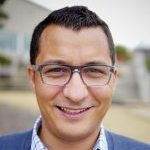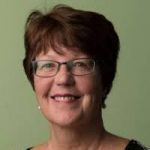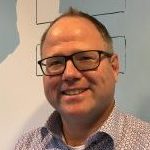Learning Analytics goes to Schools (#LA4Schools)
NOTE: Pre-conference events have been postponed. The new date for the event will be announced soon, once the situation with COVID-19 outbreak is clearer.
Knowledge transfer for sustainable adoption of learning analytics in schools
UPDATE
“…and then there was Corona.” A phrase that I’m sure has occupied many of you in your daily work and learning and teaching. And so it has been for us. Herewith we would like to give you an update on our LA4Schools Workshop.
Since the further development of corona restrictions cannot be estimated until the end of the year, we have decided to turn the expert panel and workshop on Learning Analytics in schools into an online “Master Class”. A Master Class is a new ambitious qualification format. It contains a mixture of self-study, expert presentations, tutorials, and interactive elements. A Master Class can be completed within one week and participants receive a certificate upon completion. We are planning to do the same and turn our now slightly modified concept into an online event on Learning Analytics in schools with Marcel Schmitz.
If you are still interested in the LA4Schools Workshop and would like to participate in the Masterclass, please send us your feedback by 01.09. The workshop is expected to take place at the end of this year.
Full-day workshop co-located with LAK20: The 10th international Learning Analytics & Knowledge Conference
Supported by Jacobs Foundation
In the past years, we have seen many examples of how the analytics revolution has transformed sectors in society ranging from finance, health, shopping and education.
Learning Analytics is the measurement, collection, analysis and reporting of data about learners and their contexts, for purposes of understanding and optimising learning and the environments in which it occurs (Siemens, 2011). Learning Analytics has been primarily targeted to the higher education sector, but adoption in the K-12 sector is growing and there are great opportunities to fundamentally change education practices and establish new ways of teaching and learning for future generations.
However, they also hold the risk that many mistakes will be repeated due to a lack of knowledge transfer. Therefore, the focus of the Learning Analytics goes to Schools workshop (LA4Schools) is designed to transfer best practices and lessoned learned from early adopters of learning analytics in school to school leaders, teachers, data analysts, academics, policymakers, and all other interested parties that need to wisely invest into their educational infrastructure in the coming years. The LA4Schools workshop offers a professional learning and development day focused on the practical applications of Learning Analytics in schools (K-12). Drawing on national and international expertise, speakers include innovative school leaders and teachers, school data analysts, university researchers, software, and consulting companies.
You are warmly invited to join the LA4Schools workshop to learn from experts in the field, and to share your own experiences, insights, and questions.
Participation
The LA4School workshop series is developed for newcomers, as well as for those with some knowledge already about Learning Analytics, and/or who are already using it in classrooms. The LA4School workshop is intended as a workshop with up to 100 participants. Participants will receive a certificate of attendance.
Type of participation
The LA4School workshop will have a mixed participation design, in general, it is an open workshop, but you can also submit your current work and challenges you face for learning analytics in school, and the workshop organizers will take these into account to provide answers to pressing topics.
Objectives
The objective for participants is to leave with a deeper understanding of:
- the diverse forms that Learning Analytics can take, and especially how technology extends this far beyond conventional school data to create better feedback;
- how such data is being used by school leaders to support strategic reflection;
- how new kinds of data are being used by teachers to support their practice;
- the practicalities of initiating such work in one’s own school
Recordings and streaming
The workshop will be live-streamed and recorded as an online reference also after the actual workshop day. Video snippets will be recorded with some of the participants at the workshop to express the challenges and hope they expect with analytics in school. The challenge sessions will be also supported by infographics created on the fly during the challenges session.
Schedule
|
9:30 |
Welcome and Initial Remarks |
|
9:45 |
Keynote and Expert Speakers AGORA – Beyond curricula, Learning Analytics as means to structure and document individual learning Learning Analytics for your personal learning |
|
11:15 |
Coffee Break |
|
11:45 |
Roundtable discussions
|
|
13:00 |
Lunch |
|
14:00 |
Challenges and Lesson for Knowledge Transfer
|
|
15:30 |
Coffee Break |
|
16:00 |
Getting real. What conditions make learning analytics work at school? |
|
16:30 |
Closing Panel: From Vision to Reality |
|
17:00 |
Networking, Refreshments, Informal conversations |
Workshop costs & registration
This workshop is complimentary thanks to support from the Jacobs Foundation. To receive your discount code you must complete a short questionnaire providing the organizers with important information regarding the following:
- Your Subject Matter
- Your School/Organization
- The challenges you are facing within your school and how you think Learning Analytics may play a role
Once the questionnaire has been submitted (please use this form) and reviewed, conference organisers will provide you with a discount code prior to March 1, 2020.
Participation is limited so please submit your questionnaires as soon as possible to reserve your spot in this important workshop.
Note: If the participation limit is reached, priority will be given to K-12 educators
Location & travel information
The LA4Schools workshop will take place at Campus Westend, Goethe University Frankfurt, “Germanys most beautiful campus”. Please see the LAK20 website for more information about the Goethe University and your travel options to Frankfurt.
Curious about learning analytics?
If you want to learn more about learning analytics, we warmly recommend you to join the LAK20 pre-conference workshops on Tuesday and/or the LAK20 conference. You will meet more than 400 international learning analytic experts and have an excellent platform for further discussions. For more information, see the LAK20 conference website.
In addition, feel free to explore the Society for Learning Analytics Research’s website to find important resources, such as the Learning Analytics Handbook, Podcasts, Webinars and other publications to provide an overview to Learning Analytics prior to the workshop.
Questions?
Please let us know if you need more information. We will be happy to answer your questions.Contact: lakconference@gmail.com
Workshop Chairs
Abelardo Pardo
President Society for Learning Analytics Research
Abelardo Pardo is Professor and Dean Academic at the Division of Information Technology, Engineering and the Environment at the University of South Australia. His research interests include the design and deployment of technology to increase the understanding and improve digital learning experiences. More specifically, his work examines the areas of learning analytics, personalized active learning, and technology for student support. He is the author of over 150 research papers in scholarly journals and international conferences in educational technology and engineering education.
Susan Haynes
Carnegie Foundation for Advancement of Teaching
Susan Haynes is the partner success manager for the Carnegie Foundation’s collaborative
technology team. She provides product development support, partnership management, and
technical assistance for various products and platforms developed by Carnegie for faculty and community partners. Prior to joining the Foundation in 2016, she worked as a legal and policy assistant in the Silicon Valley’s tech sector, specializing in print and digital copyrights. She holds a bachelor’s degree in English from Stanford University, where she specialized in creative writing and Shakespearean studies.
Jojo Manai
Carnegie Foundation for Advancement of Teaching
Jojo Manai is a senior associate managing director for collaborative technology at the Carnegie Foundation. He leads the technical team to provide Foundation-wide support for a variety of technology, including the development and administration of an information infrastructure for the Carnegie Foundation’s Design, Development & Improvement Research work, as well as the development of technology solutions for a wide range of collaboration tools to facilitate the work of Carnegie’s programs. Before coming to the Carnegie Foundation, Jojo was a search technical lead & project manager at Yahoo! where he supported rich results direct display, query pattern mining, intent analysis and impact prediction. He holds degrees in computer science and information technology from the Faculté des Sciences Economiques et de Gestion – Sfax University. In the summer of 2005 he was awarded The UC Davis Citations for Excellence and Achievement Award, as an acknowledgment of his achievements and quality of work at the University of California Davis.
Hendrik Drachsler
Professor und Arbeitsbereichsleiter Educational Technologies
Hendrik is the Head of the Educational Technologies Unit within the Department Information
Centre for Education at the DIPF | Leibniz Institute for Research and Information in Education which delivers empirical educational research, digital infrastructure and targeted knowledge
transfer, thus contributing to coping with challenges in education.
Grace Lynch
Keynote Sprecherin
Professor Grace Lynch (BA, BEd, MEd, PhD) has over 35 years of educational management
experience in Australasia, Singapore and Canada. During her career, she has gained practical academic expertise while teaching at the primary, secondary, college and university levels. Professor Lynch, an international scholar and highly regarded consultant, has chaired many management and review committees and contributed widely to advisory boards and most recently was the interim Associate Deputy Vice Chancellor Education for RMIT University.
Professor Lynch’s advice on educational underpinnings – the theory, rationale and analytics behind practice and planned outcomes – is crucial in the digital age where technology is both an enabler and driver of pedagogical change and has been an invited speaker in Australia, Asia, Europe and North America. She has published over 120 proceedings, articles, book chapters and books.
Grace developed and managed a tutorial teaching model for fully online undergraduate courses to improve student learning outcomes, including professional development and mentoring of over 140 tutors, in 34 courses with over 22,000 students. She has been responsible for managing design, development and production service groups in the provision of leadership and assistance to schools, faculties and colleges in developing courses and programs for online, blended and face-to-face learning environments. These activities assist schools and universities in strengthening the scholarship of learning and teaching while providing public dissemination and critique of experiences around the changing nature of teaching and learning.
Grace has worked extensively in both K-12 and higher education sectors and was a member of the Education & Training Research Panel for the Office of Learning and Teaching, Victoria State Government Department of Education and Training for over 10 years. She was the author of a background paper for Office of Strategy and Review in Department of Education and Training for the Victorian State Government on Schools in 2020 which included rural, regional and Indigenous schools.
Marcel Schmitz
Marcel Schmitz is working for more than 16 years in Higher Education at Zuyd University of Applied Sciences in the South of the Netherlands. His career at Zuyd started as a Technical Support Engineer and Developer on the learning management system and soon he began to implement and develop several learning enhancing technologies. In 2007 Marcel started to combine his support job, with a job as technology enhanced learning advisor for all faculties at Zuyd and a teaching role at Zuyd Faculty of Information and Communication Technology. In 2009 Marcel became a team coordinator of the Informatics department. In 2012 he was part of a team of educational coordinators that implemented a new study at the faculty. From 2016 he is working as a researcher at the Zuyd research center of data intelligence and as an external PhD at the Open University of The Netherlands. The research is on Learning analytics supported learning design.
Guido van Dyk
Guido van Dijk has been active in the education sector since 1996. He started his teaching career as a teacher of mathematics and computer science. In 2013, he is one of the developers of the innovative Agora education concept at Niekée School in Roermond, the Netherlands, where students of a public school learn without a curriculum. After working as a coach for several years, he is now exploring the effects of agile learning and transitions to other radical forms of education. Since 2019, he has been employed part-time as Praktor Cloud-engineering in Rotterdam, where he organises the professionalisation of teachers in cooperation with the business world.








